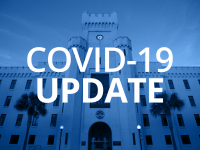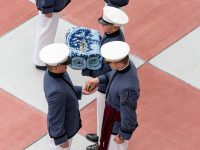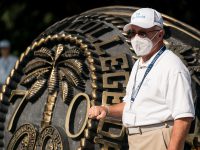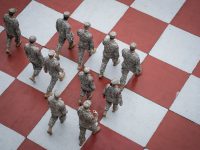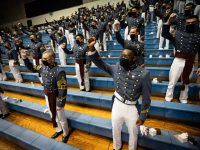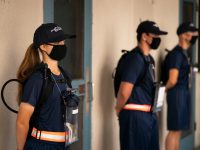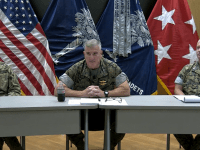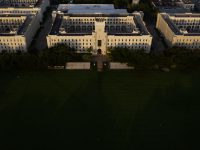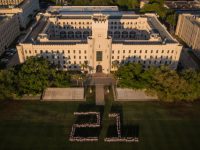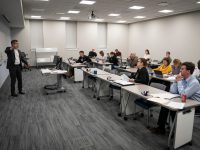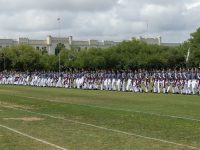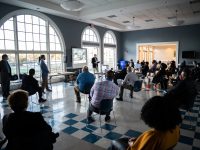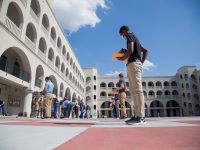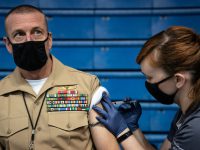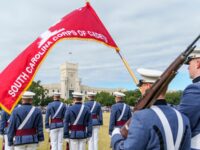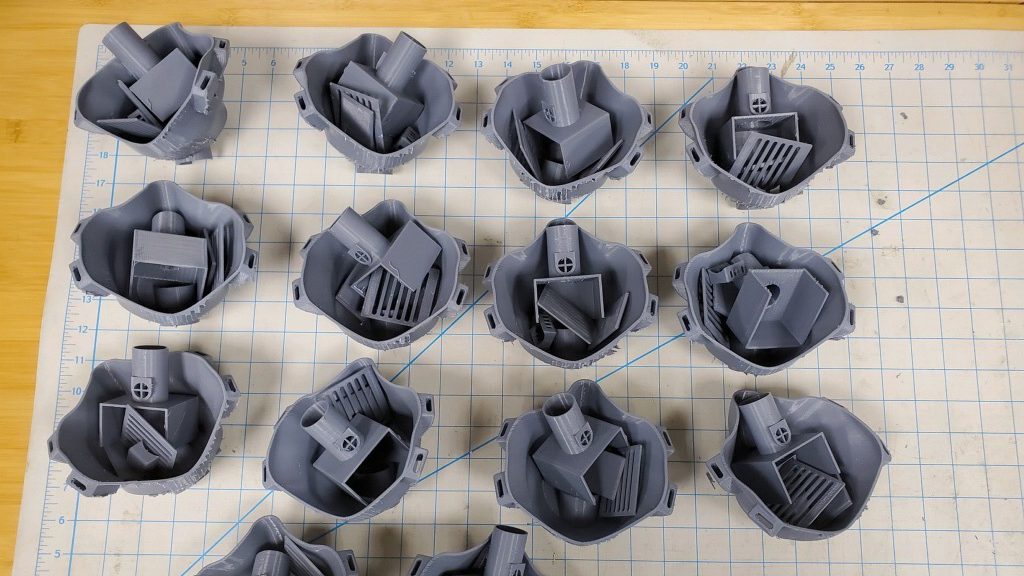
From the South Carolina Commission on Higher Education
A project that began with The Citadel, the Medical University of South Carolina (MUSC) and Coastal Carolina University to produce crucial medical equipment has grown into a statewide effort. The Commission on Higher Education (CHE) is now coordinating this initiative to address a challenging shortage of critical medical supplies by utilizing the state’s public colleges and universities. Higher education students and staff will use 3-D printers housed at multiple public colleges and universities to produce protective medical masks, ventilator splitters, and face shields, items urgently needed to protect the state’s health professionals as they care for patients and fight the COVID-19 pandemic. Since students’ learning has moved online and most have returned to their home communities, equipment and machinery that routinely operates during the semester is available for use, including 3-D printers. Last week, the Department of Health and Environmental Control (DHEC) agreed to provide the CHE with $300,000 in emergency funds to purchase the specialized filament required to make the protective equipment.
The statewide effort grew from the efforts of Dr. James Bezjian, The Citadel’s Assistant Professor of Entrepreneurship and Director of the Innovation Lab in the Baker School of Business. Dr. Bezjian was working with MUSC to develop and produce medical masks for MUSC health workers as they assist patients with COVID-19. West Courtney, a Citadel senior who is one of Dr. Bezjian’s students, asked how he could help. He connected with Coastal Carolina University, which soon began using its idle 3-D printers to assist in the mask-producing effort. Coastal is using the prototype developed and approved by MUSC and forecasts at least 50 masks will be produced this week, with production ramping up in future weeks.
“I’m thrilled that Coastal Carolina University had the opportunity to be a leader in this important endeavor,” said David A. DeCenzo, Ph.D., president of Coastal Carolina University. “This project shows how we can all come together in innovative ways in times of great need to provide a service that directly and immediately impacts those on the front lines.”
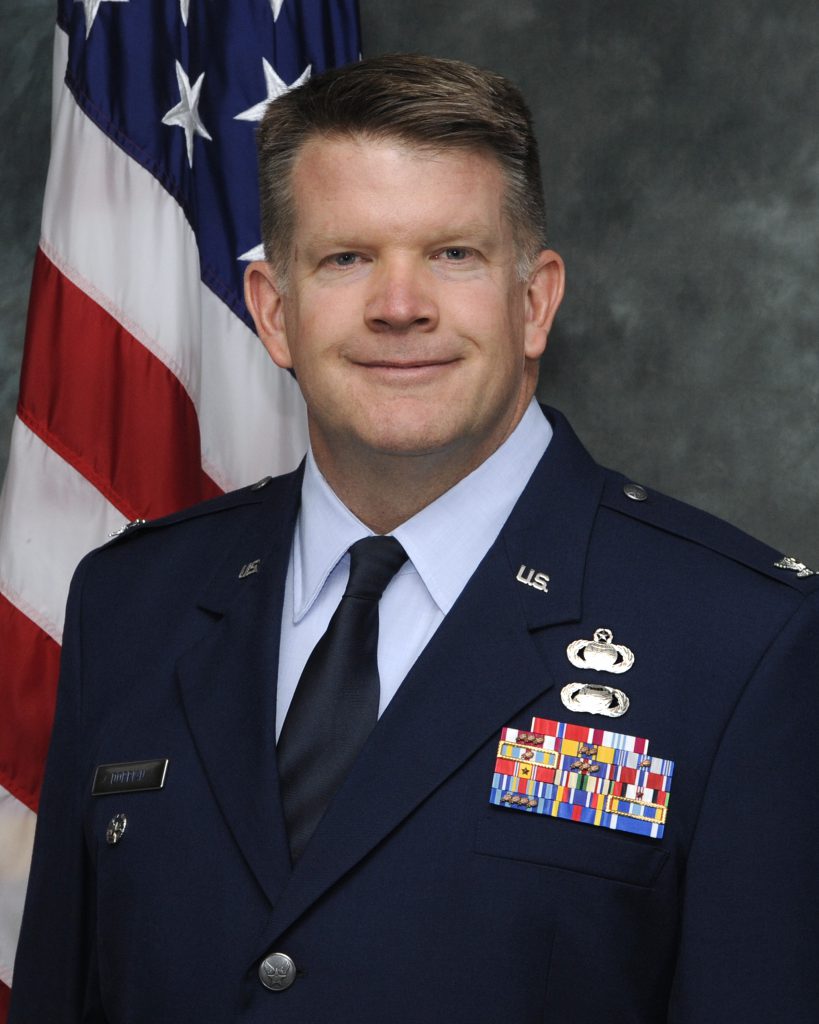
The Citadel’s mission is to educate and develop principled leaders in alignment with the core values of honor, duty and respect,” said Col. John Dorrian, USAF (Ret.), vice president of communication and marketing for The Citadel. “Three professors from three different areas of the college and some students – including one cadet who volunteers for the Baker School of Business Innovation Lab – are demonstrating in a very meaningful way, the college’s culture of believing we all have a duty to serve and to lead not only in a crisis, but each day. We are very proud of their work in support of the tireless healthcare workers at the tip of the spear at MUSC.” The Citadel estimates it will produce between 750-1000 masks by May 1.
With DHEC’s funding, universities can buy specialized PLA printing filament and other materials to make these desperately needed items. The University of South Carolina (UofSC) is using its 3-D printers to produce the rubber band used for the face shield. UofSC plans to produce a total of 5,000 face shields for MUSC, with a goal of delivering 1,000 face shields by the end of the week. Central Carolina Technical College plans to produce 500 face masks a week for McLeod Hospital in Florence.
“It’s an incredible effort. Everyone wants to help and make a difference,” said Dr. Rusty Monhollon, CHE’s president and executive director. “This is a great example of how students and leaders are working together to leverage higher education’s research and development power during a crisis to change people’s lives, impact public health and help our medical professionals who are on the front line. We are grateful to the governor, our legislative leaders and DHEC for providing these funds.”
South Carolina’s government and higher education leaders and students are finding ways to help combat the COVID-19 pandemic. We are stronger together than we are apart.

 Citadel veteran student wins the 10th annual Baker Business Bowl, receives $10,000 for their business plan
Citadel veteran student wins the 10th annual Baker Business Bowl, receives $10,000 for their business plan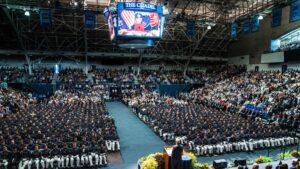 Preparing for The Citadel Class of 2024 commencement ceremonies
Preparing for The Citadel Class of 2024 commencement ceremonies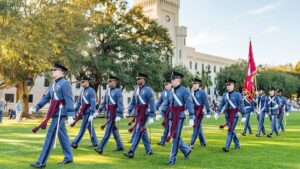 Upcoming News from The Citadel – April 2024
Upcoming News from The Citadel – April 2024